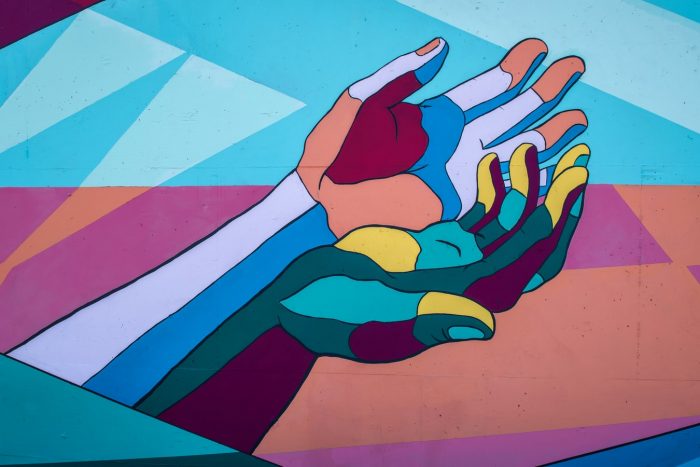Trauma is the opposite of love.
From the 17th century Greek root of “wound,” trauma expresses itself as fear, shame, separation, and unprocessed grief.
Wounding—which is often seen as a “bad” word—is simply what happens when there is no love.
Finding our way back to love requires healing our trauma, which is often unconsciously seeking to resolve itself through repeating loops and cycles.
And healing trauma is a necessary, if not vital, component of healing a culture that is founded on the principles of patriarchy, white supremacy, and capitalism.
Patriarchy is primarily founded on the male oppression of the feminine, both in men and women. This presents as narcissism, oppression, objectification, victim shaming, dehumanizing, silencing, gaslighting, and many other forms of abuse.
White supremacy is primarily founded on the oppression of Black, Indigenous, Asian—all humans of color. Similar to patriarchy, this can present as narcissism, violence, dehumanizing, separation, hurting your very soul, victim shaming, silencing, abuses of power, gaslighting, and many other forms of abuse.
Capitalism is the commodification of humanity for the purposes of making money. And we see money as more important than love, more important than souls, and more important than nourishing our Mother Earth. It is corruption that leverages trauma and emptiness to put wealth in the pockets of the one percent—most of whom are white.
This is trauma culture. In fact, this is America.
And it informs our views, relationships (with self and others), and our spirituality.
We have learned a way of being that is essentially a repeating trauma loop. It is a culture of fight, flight, freeze, or people-pleasing—and in heightened states of collective trauma, people-pleasing can look like more fighting and divisiveness, even while believing we’re fighting for the right side.
It’s difficult to clearly see trauma for what it is when, as a collective society, we have all been trained that gaslighting, bullying, greed, fear, and shame are normal aspects of human relating. These behaviors are hot potatoes we throw from person to person, unconsciously perpetuating them.
We’ve been trained to not be able to see these qualities while they are quietly ingrained in our way of life, our way of being. It’s crazy-making.
And when we finally have an awakening, it is shocking. The shame we feel triggers a trauma response, and it is also a symptom of trauma, which then triggers further feelings of separation, rejection, fear, and unprocessed grief—all of which feels like too much to bear.
So how do we get out of these trauma cycles?
It takes time to heal trauma, to climb out of the protective responses and get real with what’s true. Healing this kind of trauma is long haul work.
First, healthy grieving is a necessary part of dismantling this insane trauma culture we’ve all been living in. It is not just for our own sanity but for the sake of everyone around us, too. We must honor our grief, our brokenness, our yearning for love.
Next, we have to unlearn the idea that trauma is a “bad” word. Our truest healing can only come when we find ways to love ourselves inside our wounds, in spite of them, and become of them—and transform our trauma into safety and wholeness, allow us to build a new architecture for being in this world. Then we must foster a connection, a remembering.
Then, rest. If you begin to feel overwhelmed from everything you see online, from the news, and even from all you’re doing to right some of those wrongs in our society, it’s okay to slow down. Acting through trauma responses is not a sustainable way to live.
Balancing right action with healing trauma is the long-term future we are aiming for.












Read 0 comments and reply